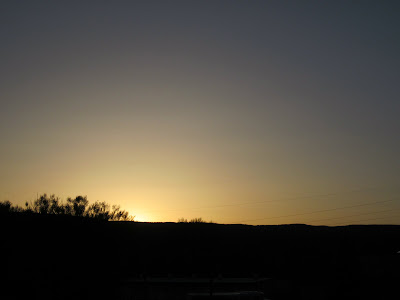Feminism in the Making
When I was in first grade, I didn't know yet what I wanted to be when I grew up.
I'm sure I'd given it thought at some point, but I didn't have a fixed answer. I was mostly focused on being a kid and playing with my new baby sister. But one day in class, the teacher brought up the subject.
I went to a tiny Lutheran school for kindergarten and first grade. We had a treacherous, delightful playground out back, and the whole school went to church on Wednesday mornings, in the attached chapel. The enormous first- through third-grade classroom consisted of 13 students and one teacher. Our lessons included math and reading, of course, but we also learned about the bible.
As the teacher went around, asking every one of the seven first-grade students what they wanted to be when they grew up, I pondered to myself. Everything the others said sounded good - teacher, doctor, firefighter - but none of them really sparked my interest.
The teacher finally reached the kid in front of me, who said he wanted to be a pastor. Then she came to me.
"What do you want to be, Allison?"
I still didn't have anything in mind, so in the typical fashion of a child who doesn't know what he or she wants, I parroted what the kid in front of me had said.
"A pastor."
"You can't," said the teacher. "You're a girl." And she went on to the next student.
I crumpled. The wind went out of my sails and my eyebrows scrunched. I'd never been told I couldn't be whatever I wanted when I grew up. I'd never heard that being a girl instead of a boy could prevent you from doing something.
So what if I was a girl? I didn't understand why just being a girl meant I couldn't be a pastor. (Honestly, I still don't.) I could do things as well as any boy, or even better.
At that moment, I went from sad and disappointed to angry. A little spark of determination flared up in me: being a girl would never keep me from doing anything. To this day, whenever someone challenges that I can't do something, that spark flares up again, and I set out to prove that person wrong.
I'm sure I'd given it thought at some point, but I didn't have a fixed answer. I was mostly focused on being a kid and playing with my new baby sister. But one day in class, the teacher brought up the subject.
I went to a tiny Lutheran school for kindergarten and first grade. We had a treacherous, delightful playground out back, and the whole school went to church on Wednesday mornings, in the attached chapel. The enormous first- through third-grade classroom consisted of 13 students and one teacher. Our lessons included math and reading, of course, but we also learned about the bible.
As the teacher went around, asking every one of the seven first-grade students what they wanted to be when they grew up, I pondered to myself. Everything the others said sounded good - teacher, doctor, firefighter - but none of them really sparked my interest.
The teacher finally reached the kid in front of me, who said he wanted to be a pastor. Then she came to me.
"What do you want to be, Allison?"
I still didn't have anything in mind, so in the typical fashion of a child who doesn't know what he or she wants, I parroted what the kid in front of me had said.
"A pastor."
"You can't," said the teacher. "You're a girl." And she went on to the next student.
I crumpled. The wind went out of my sails and my eyebrows scrunched. I'd never been told I couldn't be whatever I wanted when I grew up. I'd never heard that being a girl instead of a boy could prevent you from doing something.
So what if I was a girl? I didn't understand why just being a girl meant I couldn't be a pastor. (Honestly, I still don't.) I could do things as well as any boy, or even better.
At that moment, I went from sad and disappointed to angry. A little spark of determination flared up in me: being a girl would never keep me from doing anything. To this day, whenever someone challenges that I can't do something, that spark flares up again, and I set out to prove that person wrong.



Comments
Post a Comment